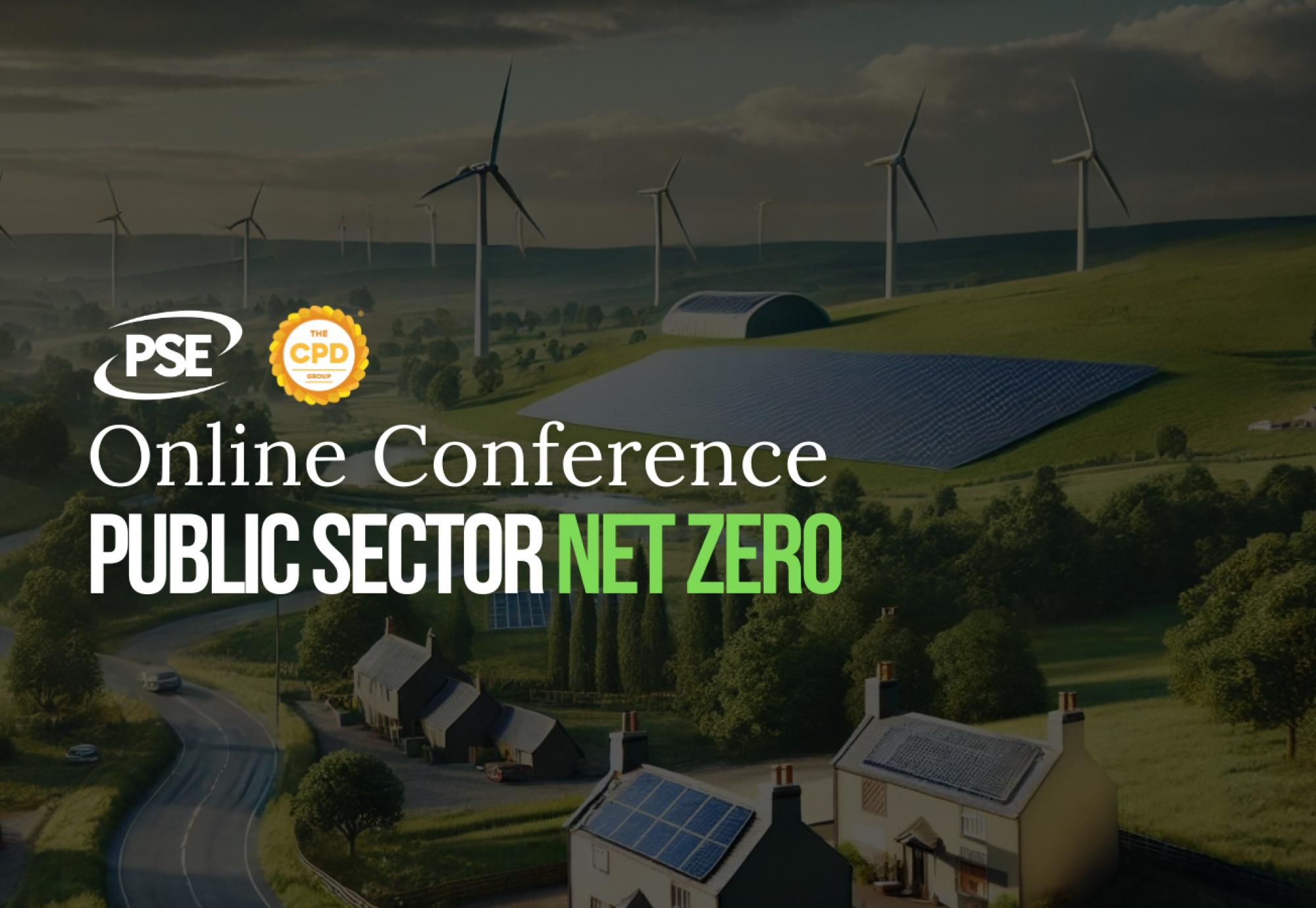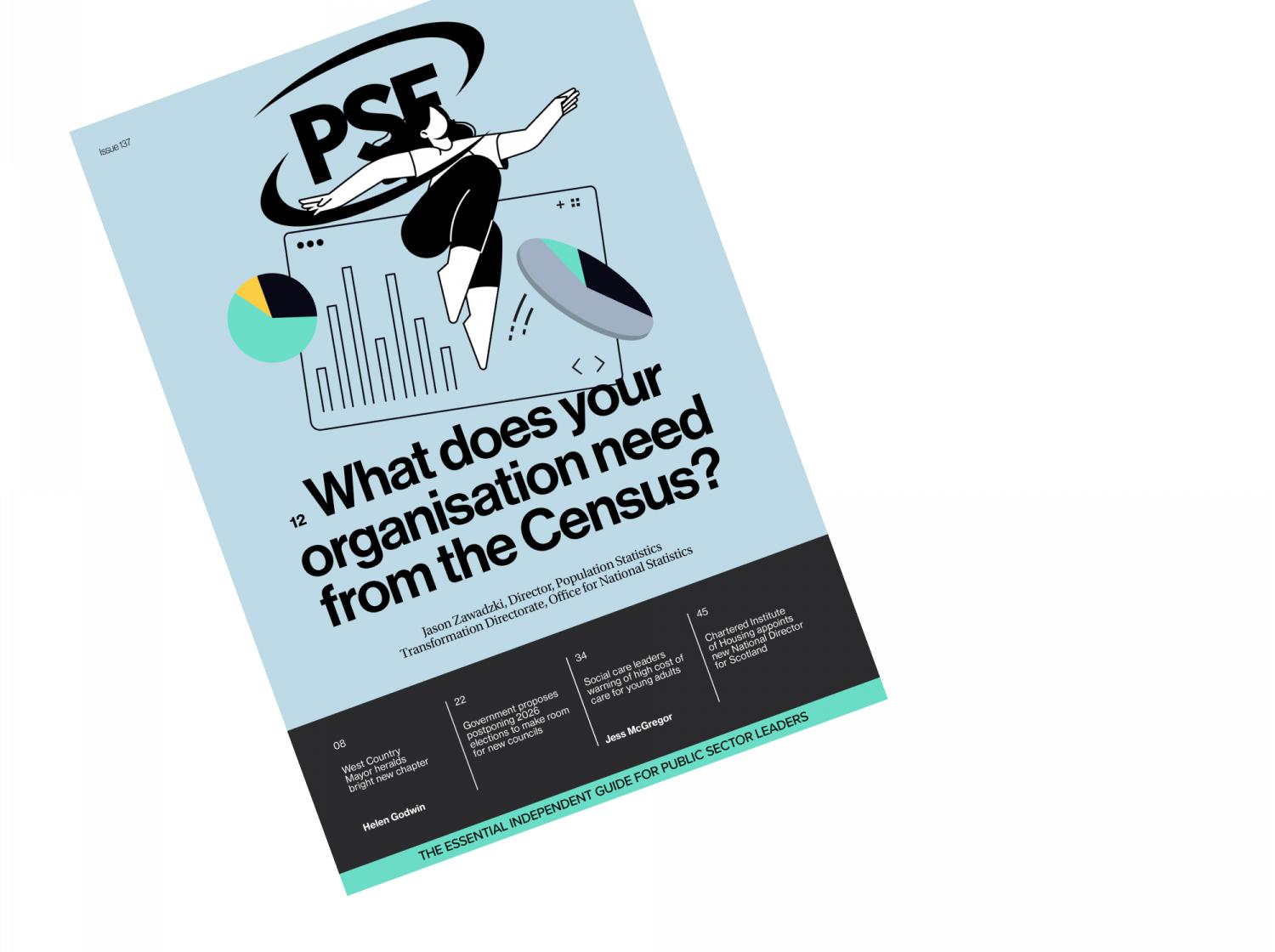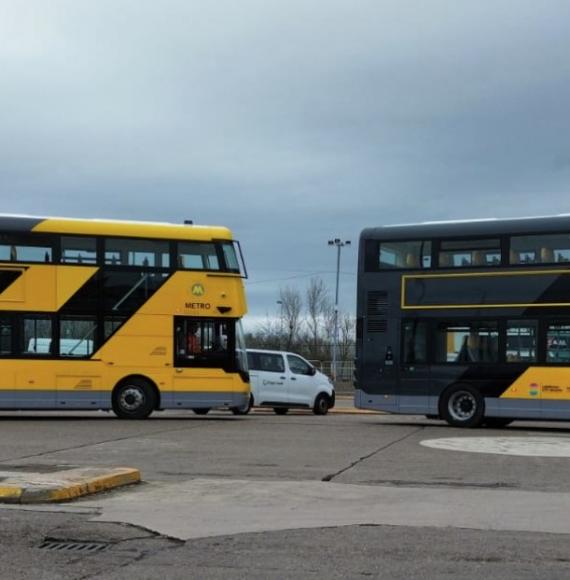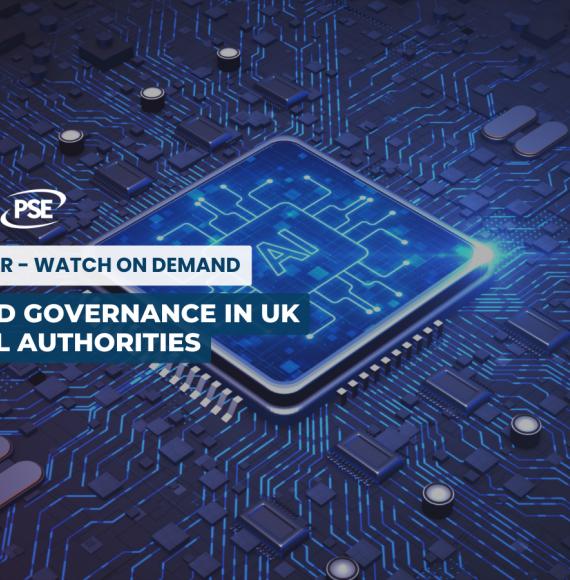The public sector is playing, and will continue to play, a crucial role in the mission to achieving net zero by 2050. With policies being introduced around electric vehicles, green energy, and sustainable innovation, this also provides an opportunity for business worth around £1 trillion.
In order to get the latest insight from public sector leaders on the benefits and challenges of the decarbonisation journey, as well as knowledge on how this can be done effectively, Public Sector Executive hosted its 2025 Public Sector Net Zero online conference.
Transport
In the first panel discussion, panellists delved into the critical issue of transport and its role in the UK's journey towards achieving net zero emissions. As the largest source of emissions in the country, accounting for just short of 30% of the total in 2024, transport presents both a challenge and an opportunity for innovative solutions.
The panel, featuring representatives from various local authorities, discusses the responsibilities that lie across local, regional, and national levels. Sarah Spink (Strategic Partnerships Lead at Midlands Connect) emphasised that collaboration is essential, stating, “The responsibility for net zero lies with all of the above: local, regional, and national.”
This sentiment was echoed by Keith Melton (Portfolio Holder for Climate Change and Net Zero at Newark and Sherwood District Council), who highlighted the need to improve rural transport access to reduce car journeys and enhance air quality.
One of the key topics explored was the importance of active travel. Richard Burton (Active Travel Champion at Forest of Dean District Council), noted that promoting walking and cycling can significantly impact not only emissions but also public health. He argued that “Active travel is crucial for reducing pollution and improving health,” underscoring the multifaceted benefits of shifting towards more sustainable modes of transport.
Electric vehicles were also a focal point of the discussion. Katie Pudney, (Electric Vehicle and Charging Strategy Lead at Essex County Council), pointed out that while EVs are a step in the right direction, they are not a silver bullet for decarbonisation. “They must fit into a wider sustainable travel framework,” she explained, emphasising the need for a holistic approach that includes public transport and active travel.
However, the panel did also acknowledge the challenges associated with implementing effective transport solutions. Funding disparities and the need for cultural change are significant barriers. The discussion highlighted the disparity in funding for active travel compared to road schemes.
AI Innovation and Emerging Technologies
The second panel discussion took a deep dive into the role of artificial intelligence and new technology in driving the UK's public sector towards its ambitious net zero targets. With a focus on achieving a 78% reduction in emissions by 2035, the panel of experts shared their insights on how AI is being utilised to optimise energy use, manage decarbonisation funds, and create smart infrastructures.
The discussion opened with Bilal Hussain (Principal Climate Energy Analyst at Westminster City Council), who highlighted the innovative use of AI to track emissions related to the council's procurement processes. By employing AI tools, they have significantly improved the accuracy and efficiency of their emissions tracking, enabling better engagement with stakeholders and targeted reduction efforts.
Steve Cornes, from Nottingham City Council, elaborated on a European Union project aimed at developing an interoperable energy management system. This system integrates various renewable energy sources and storage solutions, addressing the challenges of energy intermittency and infrastructure costs. Steve emphasised the importance of machine learning in predicting energy demand and optimising supply, showcasing how AI can enhance grid capacity without the need for constant reinforcement.
Shanika Mahendran (Cabinet Member for Climate, Sustainability and Innovation at Milton Keynes City Council) shared her experiences with the Smart Cities programme that began in 2014. The programme has leveraged AI to analyse data on energy inefficiencies in housing stock, aiding in effective resource allocation for decarbonisation efforts. She also discussed the city's autonomous vehicle trial, which aims to improve public transport accessibility and contribute to their net zero goals.
The conversation further explored the potential of AI in future planning, with Alex Buckman (Innovative Solutions Architect at the Energy Systems Catapult) discussing their ADVICE project, which focuses on using AI for decarbonisation strategies. The panel agreed that collaboration across public sector institutions is vital for sharing knowledge and best practices, as they collectively work towards a sustainable future.
As the discussion came to a close, the panellists reflected on the exciting opportunities presented by AI in the fight against climate change. With innovative projects underway and a commitment to collaboration, the public sector is poised to lead the way in achieving net zero emissions.
Alternative Fuels and Solutions
In the race towards achieving net zero emissions by 2050, the UK is focusing on alternative fuels and clean technologies. The next leaders debate looked into this crucial topic, featuring a panel of experts who shared their insights on the challenges and successes of implementing these solutions in local councils.
One of the key highlights is the rise in heat pump installations, with nearly 100,000 units installed in 2024 alone—a significant increase but still far from the government's target of 600,000 by 2028. Mohammed Rafiq (Executive Member for Climate, Energy, Environment and Green Spaces at Leeds City Council) discussed the innovative Leeds Pipe District Heating network, which utilises waste heat from non-recyclable domestic waste. This initiative not only reduces carbon emissions but also creates green jobs within the community.
Bret Willers (Head of Climate Change and Sustainability at Coventry City Council) shared insights on their own heat network, which has been operational for over 15 years. He highlighted the importance of collaboration among local authorities to develop net zero neighbourhoods that demonstrate reduced carbon emissions at a community level. However, the challenges of retrofitting older properties for heat pumps and improving insulation remain significant hurdles.
The discussion also touched on the intersection of climate initiatives and health. Hawarun Hussain (Net Zero Programme Manager at West Yorkshire and Harrogate Health) emphasised that while heat pumps are a step in the right direction, they can exacerbate issues of fuel poverty and health inequalities if not implemented with care. The panel also highlighted the need for accessible funding and support for those who may struggle to afford the initial investment required for retrofitting.
As the conversation unfolded, the panellists explored various innovative technologies and approaches, including the potential of using waste heat from sewage systems and geothermal sources. They also stressed the importance of a holistic approach to energy management, ensuring that health impacts are considered alongside environmental benefits.
EV Infrastructure
In the penultimate session of the conference, panellists tackled the critical issue of electric vehicle infrastructure within the public sector, a topic that has taken centre stage as the UK aims for ambitious climate targets. The transport sector is currently the largest emitter of greenhouse gases in the UK so, as we move towards a greener future, the need for robust EV infrastructure becomes increasingly evident.
The expert panel, consisting of Shamala Evans-Gadgil (EV Infrastructure Programme Manager at Coventry City Council), Jack Adams (EV Infrastructure Project Manager at Wakefield Council), Theo Parkes (Senior Officer of EV Infrastructure at Nottinghamshire County Council), and Bryony Chetwode (Design Engineer for Public Transport at Swindon Borough Council), shared their experiences and insights on the challenges they face in scaling EV infrastructure.
With the UK aiming for 300,000 public charge points by 2030, the pressure is on to innovate and adapt.
One of the key lessons highlighted by Theo Parkes is the importance of embracing change in a rapidly evolving market. He emphasised that being open to new technologies and methodologies is crucial for success. The panel also discussed the necessity of effective communication with stakeholders, including residents and industry experts, to foster collaboration and understanding.
Shamala Evans-Gadgil raised an important point about public awareness and the myths surrounding EVs. She noted that many residents are unaware of the benefits of electric vehicles, making community consultation vital. Engaging with residents not only helps dispel myths but also builds trust and support for new initiatives.
Jack Adams shared the procurement challenges faced in Wakefield, where a mixed council area presents a unique set of obstacles. He highlighted the need for clear guidance and regulatory backing, as the industry remains relatively unregulated. The panel then discussed the importance of flexibility in procurement processes to accommodate the diverse needs of different councils.
Bryony Chetwode added another layer to the conversation by discussing the integration of EV infrastructure with public transport and active travel. She stressed the need for a holistic approach, where EV charging solutions do not obstruct other transport routes. This interconnectedness is essential for creating a seamless travel experience for all users.
As the discussion unfolded, the panel reflected on their community engagement strategies, including visualisation models that help residents understand how EV infrastructure will impact their streets. The feedback has been predominantly positive, with residents beginning to warm to the idea of EV charging points as a part of their community.
In conclusion, the journey towards a sustainable transport future is fraught with challenges, but the insights shared by the panel provide a roadmap for success. By embracing change, fostering community engagement, and maintaining open communication, local councils can lead the charge towards a net-zero future
Estates
In a world increasingly aware of the impacts of climate change, the need for decarbonisation within public sector estates has never been more critical. With the UK aiming for net zero by 2050, local authorities, the NHS, and other central bodies are stepping up to the plate to explore innovative solutions. In the final panel discussion of the day, experts shared their insights on how to future-proof estates through low carbon heating, energy efficiency retrofits, and smart technologies.
The discussion kicked off with a focus on the public sector decarbonisation scheme, which has committed over £2 billion to help facilitate this transition. The panellists, including representatives from Walsall Council and the Royal Wolverhampton NHS Trust, highlighted their ongoing retrofitting projects aimed at improving energy efficiency in both residential and public buildings. Notably, Adrian Andrew (Associate Leader of Walsall Council) shared details about their net zero project on the Dudley Fields Estate, which involves a comprehensive range of structural improvements to 85 units, showcasing how local authorities can lead the charge in reducing carbon emissions.
One of the key challenges discussed was the retrofitting of historical buildings. Tricia Ayrton (Portfolio Holder for Climate Change and Environment at Rochdale Borough Council) spoke about the complexities involved in installing air source heat pumps in their grade one listed town hall, marking it as the first of its kind in the UK. The technical hurdles of integrating modern technology into older structures were a recurring theme, as panellists acknowledged the importance of preserving heritage while also adapting to new energy standards.
Public engagement once again emerged as another significant topic. The panel discussed the importance of communicating effectively with residents about the benefits of decarbonisation. Adrian noted that while the response to their projects has been overwhelmingly positive, the politicisation of net zero initiatives can sometimes lead to misunderstandings among the public. It’s crucial that local councils convey the message that these efforts are aimed at reducing energy costs and improving living conditions, rather than merely fulfilling environmental quotas.
As the conversation progressed, the panellists shared valuable lessons learned from their experiences. Janet Smith (Head of Sustainability at Royal Wolverhampton NHS Trust) emphasised the need for a pragmatic approach to planning for the transition to net zero, highlighting that retrofitting alone is not enough. A comprehensive transition plan that considers energy use, building resilience, and future needs is essential to ensure that public facilities remain functional and efficient.
Make sure that you have access to all of the key insight provided by the expert speakers, by watching every moment of the online conference on demand here.



















